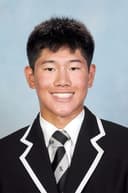
 Liam Mixtape 2022
Liam Mixtape 2022When I started reading Robert Greene's 48 Laws Of Power, little did I know I'd get the opportunity to discover a potential path in politics. The 48 Laws Of Power comprises 3,000 years of the history of power, instructing readers through examples of past political figures. Law 14: “Pose As A Friend, Work As A Spy” details how French politician Talleyrand practiced the art of political manipulation to squeeze information from rival politicians, illustrating a cynical vision of political affairs.
Although the book is fascinating, politicians and politics help society move forward in a positive manner and help humans learn their rights, something I’ve learnt in past studies and activities. In applying to university, I would like to further explore this aspect of politics in my chosen course of study.
Over the past two years, my interest in politics has grown through various IB courses. For example, in History, we studied the political context of the world's deadliest wars.
The Spanish Civil War was caused by the polarization of the political parties led by Franco on the right and the and Francisco Largo Caballero on the left.
Politics of a particular country are also shown in geography studies of climate change and tourism. An example is the Rio De Janeiro summit, where the US refused to sign the UNFCCC giving China an edge in world trade.
My Extended Essay, a 4000-word research paper which is a significant part of the IB, focused on the politics of Napoleon's 1804 Civil Code. My research examined whether Napoleon respected the rights gained by the French Revolution, through the Civil Code.
My research was split up into three sections: political, social and women’s rights. In the subject of political rights, Napoleon did not grant revolutionary wishes. However he found a compromise between the old and new for social and women’s rights, pleasing his people. For example, Napoleon granted women a place in society, which had been abolished while meeting unachieved expectations of revolutionary gains. This demonstrates that not only did Napoleon respect the gains achieved by women in the revolution, but he met the ambitions they previously had obtained.
Outside of the classroom, I deepened my political knowledge by participating in the Ecolint Student League Of Nations, the world's oldest model United Nations general assembly conference, where I was selected to represent the United Arab Emirates (UAE). After looking at many of the political problems and issues in the UAE, I wrote a resolution on the water scarcity problems which the country faces. In addition to my research, I learnt directly the art of diplomacy and political negotiation. I also participated in a course by B8 Of Hope, a Swiss-registered non-profit association, which supports a pool of peace-building and change-making in Palestinian and Israeli civil society. This out-of-class course allowed me to understand the deeper meaning behind this middle eastern conflict in more prominent detail and its politics.
My IB courses have also helped me develop important skills. History, for example, requires thorough research skills and taught me how to synthesize and analyze information. I have also used this expertise in many other areas, including the sports domain.For instance I recently put together an independent research project on English footballer Harry Maguire, incorporating statistical analysis in comparing him to other players in the Premier League. This project required skills I learned in class during long hours of collecting sources, watching games, and gathering data.
| Statistic | 2023 Urania Geneve | 2022 Varsity Team | 2022 FC Champel |
|---|---|---|---|
| Goals | 0 | 5 | First Team: 5 Second Team: 6 |
| Assists | 4 | 4 | 3 |
| Games Played | 8 | 15 | First team: 9 (including PS) Second team: 4 |



